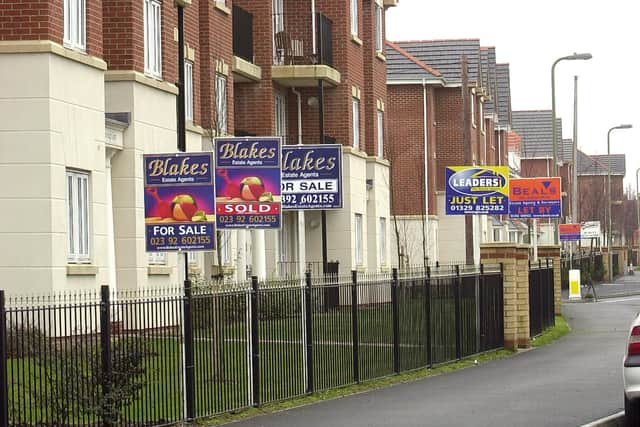House prices slow – but are still rising in face of high demand
This article contains affiliate links. We may earn a small commission on items purchased through this article, but that does not affect our editorial judgement.
and live on Freeview channel 276
Halifax has reported that home prices rose by 0.4 per cent in July, the first month since the reduction in the value of the stamp duty holiday.
However, the bank said prices had been rising more sharply a year ago, so the annual rate of increase came down from 8.7 per cent to 7.4 per cent – its lowest level since March.
Advertisement
Hide AdAdvertisement
Hide AdDavid Hannah, principal consultant at Cornerstone Tax, a property tax specialist, said: “We predicted the boom in prices and demand and, along with most other property experts, assumed it would slow down, which it is now doing.
“However, we are all surprised at just how high demand has stayed and that property prices are still going up.
“They are, as was inevitable, beginning to level out, but the social and cultural factors still driving the ‘race for space’ post-pandemic have provided an incredible impetus for people to move, far more than anyone could have guessed - so the property market shouldn’t crash, this year at least.”
North-South divide


The monthly update on the property market showed a marked north-south divide, with London, the South-East and the East of England reporting the smallest annual rises, while the biggest jumps were in Wales, the North-West and Yorkshire.
Advertisement
Hide AdAdvertisement
Hide AdSimon Bath, chief executive officer of iPlace Global, a house-moving services provider, said: “We’ve seen a flurry of activity over the last year and a bit, but always knew it would slow down as the demand starts to reduce.
“The stamp duty holiday, which has ended for most property, was an impetus to move, but not the only one – there is still pent-up savings and low-cost borrowing to fund peoples’ desires for more spacious homes in more spacious regions.”The stamp duty holiday – a relaxation on the tax on property purchases – was introduced by last summer by Chancellor Rishi Sunak to support the housing market during the coronavirus pandemic.
Since June 2020, buyers have not had to pay any tax duty on the first £500,000 of their purchase price. However, from July 1, that was reduced to £250,000 and from October 1 will revert to its pre-Covid level of £125,000.
